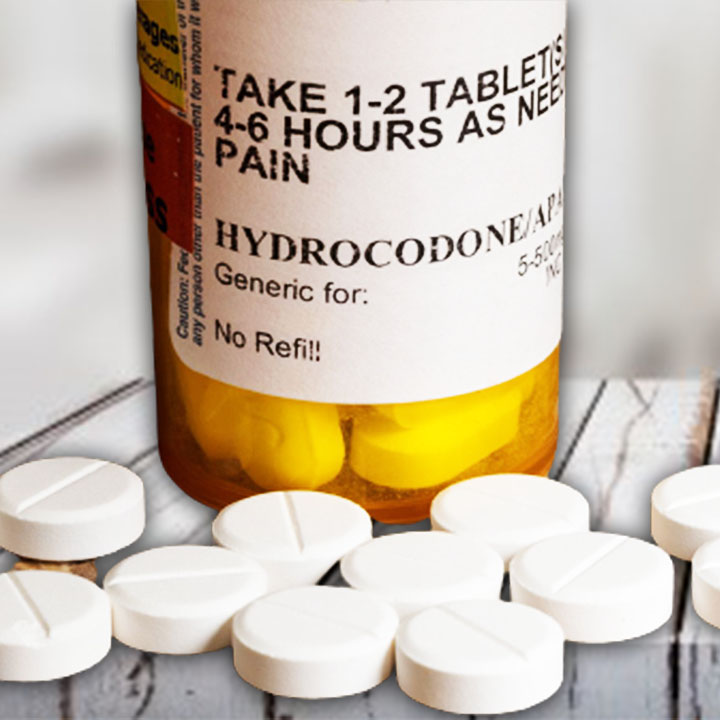What is Vicodin?
Vicodin is a combination medicine; it contains an opioid pain reliever (Hydrocodone Bitartrate) and a non-opioid pain reliever (Acetaminophen). Hydrocodone alters how your body experiences pain by interfering with the pain signals your brain receives from your central nervous system. When Hydrocodone binds with certain receptors in your brain, the experience of pain is decreased. Vicodin, like other opioid-based pain medications such as OxyContin, Norco and Percocet is highly effective at treating pain.
Causes of Vicodin Addiction
Opioid pain medicines are typically prescribed for short-term situations, such as when recovering from surgery, or following a wound or injury. As long as the individual follows the correct schedule for using the drug, typically no serious side-effects will occur. However, even when following regular dosages, the body can build up a tolerance to the drug, as it overcompensates to account for its presence. Thus, the user may begin to crave it between doses, which can lead to taking it in larger quantities, or more frequently than one should.
If the user begins to abuse the drug (by exceeding the regular dosage), then the body must work harder to adapt, and thus it will crave the drug more and more. The user will begin to experience addiction symptoms, and as with many opiates, those symptoms can be quite disruptive. When users cannot quit on their own, or if it becomes unsafe to do so, then they will need the help of a healthcare practitioner with experience in treating people coming off of opiates. Without help, users will continue to abuse the drug, even resorting to illegal means of procuring it.


